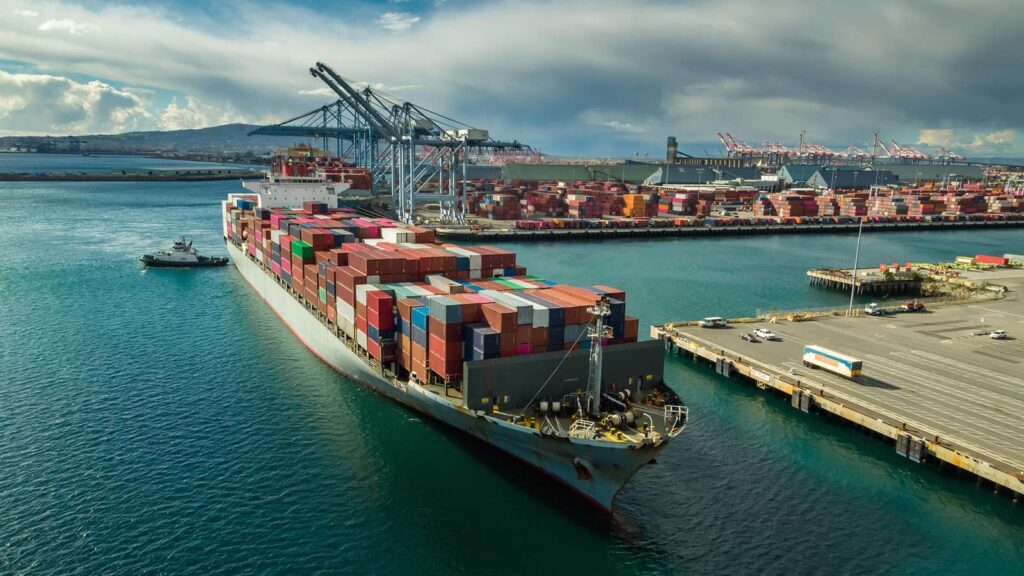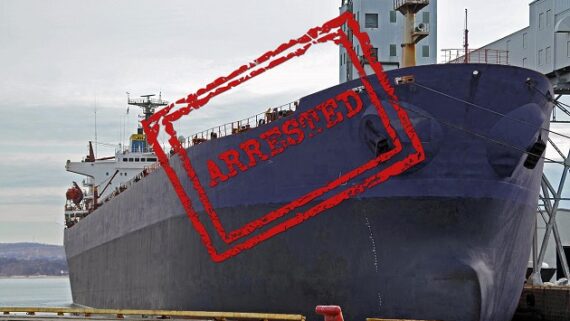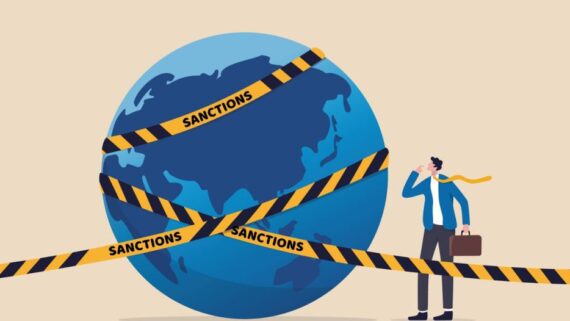Trade, tariff, and customs fraud pose serious legal and financial risks for Turkish corporations engaged in cross-border commerce. Common violations such as misclassification of goods, undervaluation, and false declarations can lead to administrative penalties, criminal charges, and reputational harm. Under Turkish customs and penal law, companies bear strict liability for the accuracy of their trade-related filings and may face severe consequences even for indirect or unintentional errors. To mitigate these risks, businesses must establish robust compliance programs, train personnel, conduct regular internal audits, and involve experienced trade counsel. Early legal intervention is essential, particularly when dealing with investigations or settlement negotiations. Proper legal guidance and proactive compliance are key to protecting corporate interests and maintaining international credibility.
Trade, Tariff and Customs Fraud by Corporations
In an era of intensified global trade and growing regulatory scrutiny, Turkish corporations are increasingly exposed to legal and reputational risks associated with trade, tariff, and customs fraud. As Türkiye expands its role as a key player in regional and international commerce, customs authorities – both domestic and foreign – are paying closer attention to compliance with trade laws and accurate reporting of cross-border transactions.
Fraudulent practices such as misclassifying imported goods to reduce customs duties, underreporting the value of shipments, or smuggling undeclared items may offer temporary commercial advantage, but they carry severe legal consequences. Turkish companies operating in global supply chains must recognize that customs violations can trigger not only administrative fines but also criminal liability, forfeiture of goods, trade restrictions, and long-term reputational damage.
Given the complexity of customs regulations and the increasing cooperation between customs enforcement bodies worldwide, even minor oversights or misinterpretations can be costly. Companies must therefore implement strong internal controls, stay updated on evolving legal requirements, and seek timely legal guidance to navigate this highly regulated domain.
This article explores the legal framework governing customs and tariff fraud in Türkiye, outlines the potential liabilities for corporations, and highlights practical steps businesses can take to ensure compliance, including the importance of working with experienced trade law counsel.
Understanding Customs and Tariff Fraud
Customs and tariff fraud refers to any intentional misrepresentation or deceptive practice used to evade customs duties or obtain unauthorized trade benefits during the import or export of goods. In Türkiye, as in most jurisdictions, such conduct is governed by both administrative and criminal provisions, depending on the severity and intent of the violation.
Common Types of Fraudulent Practices Include:
- Misclassification of Goods: A frequent tactic used to reduce payable customs duties is the intentional misclassification of imported products under incorrect Harmonized System (HS) codes. For instance, a high-tariff electronic item may be falsely declared as a lower-tariff mechanical part to reduce tax liability.
- Underreporting the Declared Value: Importers may submit artificially low invoices to customs authorities to decrease the value-based duty calculations. This can also involve the use of dual invoicing—one for the seller and another for customs.
- False Country-of-Origin Declarations: Declaring an incorrect country of origin to benefit from preferential trade agreements or avoid anti-dumping duties constitutes a serious offense under Turkish and international law.
- Smuggling or Non-Declaration of Goods: In more blatant cases, goods may be physically hidden or excluded from customs declarations altogether. This constitutes smuggling under Turkish Criminal Code and is subject to severe criminal penalties.
- Misuse of Customs Regimes: Some companies manipulate special customs regimes such as inward processing or temporary admission to obtain unjustified tax advantages without fulfilling the legal requirements attached to these regimes.
Legal Basis Under Turkish Law: Such conduct is primarily regulated under the Turkish Customs Law No. 4458, which defines administrative offenses and enforcement procedures. More serious violations may trigger provisions of the Turkish Penal Code – notably, offenses related to document falsification (Article 204), smuggling (Law No. 5607), or fraud (Article 157–158).
International Context: Türkiye, as a member of the World Customs Organization (WCO) and a party to various free trade agreements, is also bound by international standards regarding transparency, proper classification, and accurate valuation of goods. Non-compliance can lead to blacklisting, delays in cross-border trade, and reputational harm in international markets.
In this context, what might initially appear to be a technical customs matter can quickly escalate into a full-blown legal crisis – particularly when it involves systematic wrongdoing or occurs repeatedly over time.
Legal Consequences and Corporate Liability
Engaging in customs and tariff fraud exposes Turkish corporations to significant legal consequences, ranging from administrative fines to criminal prosecution. The scope and severity of these consequences largely depend on the nature of the misconduct, the intent behind it, and whether it is an isolated incident or part of a broader pattern.
- Liability for Submitting False Declarations: Under Turkish Customs Law No. 4458, companies are legally obliged to provide accurate and truthful information in all customs-related filings, including declarations of value, quantity, country of origin, and product classification. Submitting false claims or incomplete documentation to customs authorities may lead to:
- Administrative penalties (fines and interest)
- Confiscation of goods
- Suspension or revocation of trade licenses
- Trade bans or restrictions under specific regimes
- Criminal Liability: If the act is found to be intentional and fraudulent, criminal liability may also arise under Law No. 5607 on Anti-Smuggling, Article 204 of the Turkish Penal Code (forgery of official documents), or Articles 157–158 (fraud). Corporate officers, logistics managers, and customs brokers may also be held personally liable depending on their role and level of knowledge.
- Misclassification of Goods and Duty Evasion: Intentional misclassification of goods to benefit from lower tariffs or exemptions constitutes tariff fraud and may result in retroactive duty assessments along with financial penalties, typically calculated as a multiple of the evaded duties. When committed systematically, it may signal intent to defraud and lead to criminal investigation.
- Responsibility for Accurate Reporting: Turkish law imposes a strict responsibility regime on importers and exporters to ensure the correctness of all information submitted to customs. Even where a third party—such as a freight forwarder or customs broker—has prepared the documentation, the ultimate liability remains with the company initiating the trade transaction. This includes:
- The accuracy of product codes (HS classification)
- Correct valuation methods under WTO customs valuation rules
- Valid country-of-origin statements, especially in preferential trade contexts
Failing to detect and correct erroneous or fraudulent practices, even due to internal oversight or lack of knowledge, does not exempt the company from liability under Turkish customs regulations.
- Customs Penalty Settlements: Turkish law allows companies to resolve customs violations through settlement procedures with the administration (referred to as uzlaşma). These procedures may result in reduced penalties, particularly if:
- The company self-discloses the violation,
- There is early cooperation with the authorities,
- The conduct is not part of a recurring or intentional pattern
However, if there is evidence of systematic evasion or intent to deceive, authorities may reject settlement options and initiate criminal proceedings instead. Therefore, companies must weigh their legal strategies carefully and act swiftly upon discovery of any compliance breaches.
Importance of Internal Compliance Programs
In today’s highly regulated trade environment, Turkish companies engaged in cross-border commerce must do more than react to customs audits or investigations – they must prevent violations before they occur. This begins with the implementation of robust, well-documented internal trade compliance programs.
- Preventing Violations Before They Occur: An effective compliance program helps identify and mitigate risks associated with misclassification, undervaluation, smuggling, and other forms of customs fraud. It ensures that employees involved in procurement, logistics, and customs clearance understand their legal responsibilities and are equipped to meet them. A proactive compliance culture reduces both the likelihood of inadvertent violations and the severity of penalties when errors occur.
- Key Elements of a Strong Compliance Program: To be effective, a trade compliance program should include:
- Clear Internal Policies: Written procedures for customs reporting, product classification, valuation methods, country-of-origin rules, and document retention.
- Employee Training: Regular training programs for staff involved in customs, logistics, finance, and legal departments to ensure awareness of regulatory requirements.
- Audits and Risk Assessments: Periodic internal reviews of trade transactions and customs declarations to detect and correct potential issues.
- Corrective Action Mechanisms: Internal reporting channels and procedures for addressing compliance breaches, errors, or suspicions of misconduct.
- Legal Oversight: Involvement of in-house or external trade counsel in high-risk or complex transactions.
- Benefits of Compliance Programs: A well-functioning compliance program not only reduces the risk of violations but also provides mitigating evidence if a company comes under regulatory scrutiny. Turkish authorities, like their counterparts globally, are more inclined to settle cases favorably or reduce penalties when a company can demonstrate:
- A genuine commitment to compliance
- Early self-reporting and remediation
- Internal accountability measures
Furthermore, in cases involving international enforcement cooperation (e.g., between Turkish and U.S. authorities), an active compliance program can help position the company as cooperative and responsible, thereby protecting both its legal and commercial interests.
Role of Experienced Trade Law Counsel
Navigating the legal complexities of international trade and customs compliance is not a task that should be left solely to operational teams or generalist advisors. In a regulatory environment where a single misstep can lead to substantial financial, reputational, and even criminal consequences, Turkish corporations must recognize the essential role of experienced trade law counsel.
- Proactive Legal Guidance is Critical: Experienced trade counsel provides more than just reactive defense; they offer strategic advice that helps companies:
- Properly classify goods under the Harmonized System (HS)
- Accurately determine customs valuation and applicable duties
- Comply with country-of-origin and trade agreement rules
- Structure import/export operations to comply with national and international law
- Prepare for and respond to audits, inspections, and regulatory inquiries
Without such guidance, companies risk unknowingly engaging in conduct that could later be characterized as fraudulent or deceptive.
- Ignoring Legal Advice Can Escalate Risk: Companies that fail to seek or follow qualified legal advice often find themselves in far worse positions than those that act early. Continuing questionable practices after legal red flags are raised can demonstrate willful misconduct, which customs authorities and prosecutors view far more seriously than unintentional error. In cases where trade counsel’s recommendations are disregarded, the company may not benefit from penalty reductions, voluntary disclosure protections, or settlement opportunities. In some instances, failure to heed legal warnings may also give rise to director or officer liability.
- Responding to Civil or Criminal Investigations: If there are signs that an investigation is underway – such as document requests, border seizures, or whistleblower activity – retaining legal counsel with specific experience in customs enforcement and trade fraud cases becomes critical. An experienced lawyer can help:
- Assess the nature and scope of the investigation
- Advise on document preservation and employee communication
- Determine whether and how to engage with authorities
- Evaluate options for self-disclosure, settlement, or defense
Even if a company ultimately disputes the government’s allegations, early and informed legal strategy can greatly influence the outcome, including whether charges are brought and what penalties are imposed.
- Maximizing Cooperation Credit: If a company decides to settle a customs fraud matter, legal counsel plays a key role in maximizing cooperation credit. Cooperation credit can reduce penalties, mitigate reputational harm, and in some cases prevent criminal charges altogether. Counsel can:
- Craft clear, complete disclosure statements
- Demonstrate internal remediation efforts
- Highlight compliance enhancements post-violation
- Negotiate favorable terms with customs authorities
In all scenarios – prevention, response, and resolution – trade law counsel serves not only as a legal protector but as a strategic partner for long-term corporate resilience in international trade.
Recommendations for Corporations
To remain competitive and compliant in an increasingly regulated global trade environment, companies must treat trade compliance not as an administrative formality, but as a strategic priority. Authorities in Türkiye and abroad are intensifying enforcement efforts against customs and tariff fraud, and the consequences of non-compliance can be severe and long-lasting.
Here are key recommendations for corporations to reduce legal risks and safeguard their operations:
- Establish a Comprehensive Trade Compliance Program: Develop and maintain a structured internal compliance system that addresses product classification, customs valuation, country-of-origin determination, and proper recordkeeping. This includes appointing a dedicated compliance officer or team with sufficient authority and resources.
- Conduct Periodic Internal Audits: Regularly review customs declarations, supplier invoices, and trade flows to detect discrepancies or potential violations. Internal audits can help identify and address issues before they escalate into enforcement actions.
- Provide Ongoing Training to Staff: Employees involved in trade, logistics, procurement, and finance should receive continuous training on applicable customs regulations, fraud risks, and corporate policies. Well-informed staff are your first line of defense against unintentional violations.
- Work Closely with Experienced Trade Law Counsel: Engage legal professionals with proven expertise in trade and customs law to review transactions, provide legal opinions, and guide decision-making in high-risk scenarios. Legal counsel should be consulted not only during crises but as part of routine compliance strategy.
- Take Proactive Action When Investigations Arise: If your company is subject to a customs audit or receives inquiries from enforcement authorities, act immediately. Retain legal counsel to assess exposure, prepare a response strategy, and represent the company in any negotiations or proceedings.
How Bıçak Can Help?
At Bıçak, we provide strategic legal advisory services to Turkish and international businesses involved in import and export operations. Our trade and customs law practice covers:
- Risk assessments and compliance audits
- Product classification and customs valuation support
- Legal representation in customs investigations and settlement negotiations
- Development and review of internal trade compliance programs
- Strategic advice on voluntary disclosures and regulatory cooperation
- Defense in administrative and criminal proceedings related to trade fraud
With a multidisciplinary team of legal experts and former regulatory advisors, we help companies navigate the complexities of Turkish customs law and international trade regulations – proactively and effectively.
We work not only to resolve legal issues, but to prevent them. Whether you’re seeking to strengthen your internal compliance or address a pending investigation, Bıçak stands ready to support your business interests.
Overall
In the context of Türkiye’s growing integration into global markets, trade, tariff, and customs compliance has become a business-critical function. While the financial incentives to reduce costs through misclassification or underreporting may be tempting for some companies, the legal and reputational risks far outweigh any short-term gains.
Customs and tariff fraud is not merely a regulatory violation – it is a matter that can trigger severe administrative penalties, criminal prosecution, and long-term business disruption. As enforcement authorities become more vigilant and international cooperation expands, Turkish corporations must adopt a culture of integrity, transparency, and legal diligence in all cross-border trade operations.
Proactive compliance programs, regular audits, employee training, and early engagement with experienced trade counsel are no longer optional—they are essential. Companies that invest in these measures not only protect themselves from costly legal consequences but also enhance their credibility and competitiveness in the international market.
At Bıçak, we stand ready to assist businesses in navigating the legal complexities of trade and customs compliance. By combining legal insight with practical experience, we help our clients reduce risks, respond strategically to enforcement actions, and build sustainable trade practices for the future.
 English
English Türkçe
Türkçe Français
Français Deutsch
Deutsch










Comments
No comments yet.